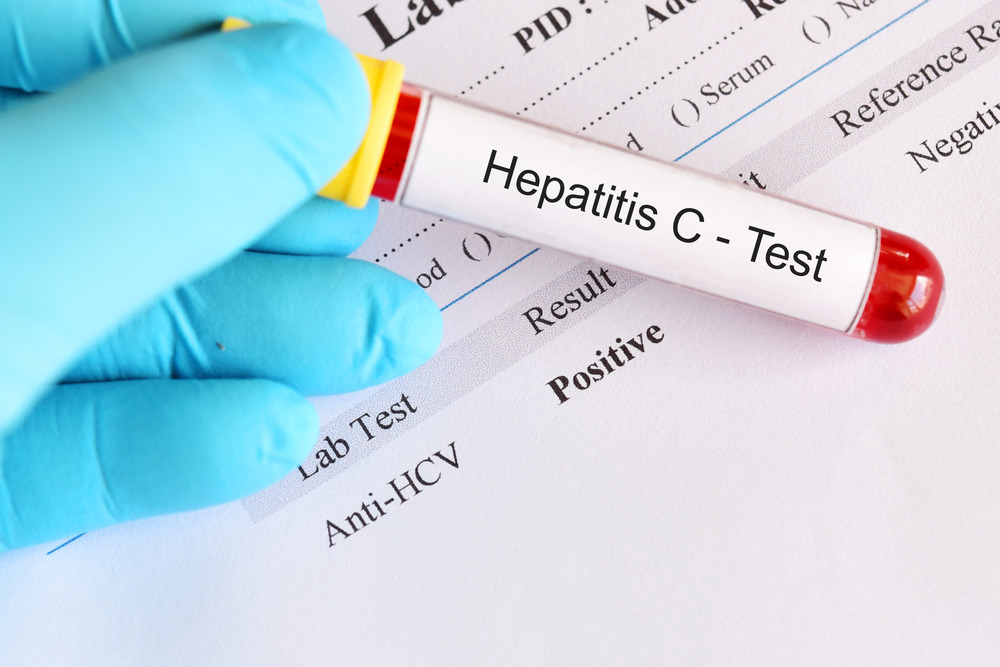
Understanding your hepatitis C test results can be overwhelming due to unfamiliar medical terms. If you are planning to get tested or you are waiting for test results, knowing how to interpret the results can eliminate confusion and worry. This blog breaks down everything you need to know about hepatitis C test results so that you can easily interpret your reports.
Understanding Hepatitis C Test Results
A hepatitis C test result is a medical report that shows whether the hepatitis C virus (HCV) is present in the blood. The result comes from one or multiple lab tests. Doctors use test results to diagnose infections, to recommend treatment, and to monitor recovery. To make sense of your test result, you should have a proper understanding of the readings in the report. A hepatitis C test usually involves an antibody test, a PCR test, a genotype test, and liver function tests. However, while having some understanding of the relevant medical terms can help you grasp the basics, speaking to a doctor is essential to interpret the results accurately.
Hepatitis C Test Results Interpretation
There are several types of tests for hepatitis C. They reveal the presence of antibodies in the blood, an active infection, and the viral load. Depending on individual risk factors, healthcare providers recommend different tests. Below is a breakdown of what each test result means.
Hepatitis C Antibody Test (Anti-HCV)
Your immune system generates antibodies in the defense against the hepatitis C virus in your body. The hepatitis C antibody test, also known as the anti-HCV test, checks for the presence of these antibodies in the bloodstream. This test is primarily used for screening and diagnosis, and is typically the first step in detecting past or present infections. Results from the antibody test may take a few days. However, this test does not reveal active infection.
Non-Reactive (Negative)
If your test results for anti-HCV are non-reactive or negative, it means that your blood does not contain the antibodies and you haven’t been infected by the hepatitis C virus in your life. However, some non-reactive test results are false negatives. For example, if you are immunocompromised or were exposed to contaminated blood within the last 6 months, your body may not have produced the antibodies. When in doubt, consult with your doctor and potentially retest later.
Reactive (Positive)
If your test result is reactive or positive, it suggests that there is a presence of antibodies in your system. A reactive or positive result means you have been infected by the hepatitis C virus at some point in the past, and your body produced antibodies to defend against the virus. While this test result may indicate current infection, it is not always the case. Your body can produce antibodies even if the infection has cleared previously. Your doctor may suggest further testing for confirmation.
Next Steps
For patients with reactive antibody tests, the next step is a PCR test to check for active infection. The result from the PCR test will determine whether you have an active hepatitis C virus or if the infection is from the past.
PCR (RNA) Test
The PCR test for hepatitis C diagnosis is a blood test that detects active hepatitis C infection. Looking for the virus’s genetic material (RNA) in the blood can reveal whether infection is present. The test uses the polymerase chain reaction, which confirms whether the virus is currently multiplying in your system. A qualitative PCR test helps check the presence of the virus, and a quantitative PCR test helps determine the amount of the virus in the bloodstream. Doctors rely on this test for both initial diagnosis and to monitor the progress of treatment. PCR test results usually take 1 to 2 weeks. This test is also called the RNA test.
Undetectable (Negative)
If the result comes back as undetectable or negative, it means the PCR test did not find any trace of the virus in your blood. If you are undergoing treatment, this result indicates that the treatment is working and the viral load has decreased significantly. In some cases, a follow-up test may be required to ensure that the virus does not return.
Detectable (Positive)
If the result says “detectable” or “positive,” it indicates the presence of an active infection that requires immediate medical attention. Doctors also check the amount of the viral load revealed by the PCR test to plan treatment and to monitor its effectiveness.
Next Steps
If your PCR test result is detectable, your doctor will proceed with a treatment plan tailored to your health and the HCV genotype. They will likely prescribe antiviral medications to reduce the viral load until the test results are undetectable. The doctor may repeat the PCR test during and after the treatment to monitor the effectiveness of the treatment plan.
HCV Genotype Test
There are up to six main hepatitis C genotypes, categorized as genotypes 1 through 6. A person can be infected with one or multiple HCV genotypes. The HCV genotype test identifies which specific strain of hepatitis C you have in your system. Based on the findings, your doctor will prescribe a treatment plan that is appropriate for the detected genotypes. The HCV genotype test helps determine which antivirals to prescribe for maximum effectiveness and the duration of the treatment.
The HCV genotype present in your body is determined by testing your blood sample. Since the HCV genotype does not change, there is no need for multiple tests. However, a person can be reinfected with the same or different genotypes. In such cases, you must repeat the test. The HCV genotype test is repeated only if the previous test results are positive.
Liver Function Tests (ALT, AST)
Hepatitis C liver function tests measure the levels of ALT (alanine aminotransferase) and AST (aspartate aminotransferase) enzymes. These tests help determine the degree of liver damage and inflammation caused by the hepatitis C virus. Test results are obtained within 1 to 2 days.
Normal ALT/AST
Normal levels of ALT and AST enzymes indicate your liver is not experiencing inflammation or injury due to hepatitis C. However, you may still have the virus. Other confirmatory tests are required in cases of suspected hepatitis C: anti-HCV and possibly PCR.
Elevated ALT/AST
When liver cells become damaged, they release ALT and AST enzymes into the bloodstream, resulting in higher enzyme levels, which are displayed in the test report. The degree of the enzymes’ elevation can help assess the extent to which the virus is affecting the liver.
Common Hep C Test Results Scenarios
To accurately diagnose hepatitis C, both the hepatitis C antibody test and the PCR test must be used in many cases. Therefore, there are several possible results of these tests, outlined below.
Anti-HCV Negative, RNA Negative
This combination of test results means no hepatitis C antibodies were found and no active infection was detected. If you were recently exposed to contaminated blood, your doctor may recommend retesting. Otherwise, there is no need for further action.
Anti-HCV Positive, RNA Negative
These test results indicate you have been exposed to the virus in the past, but do not have an active infection. You may have spontaneously cleared the infection naturally or had a successful treatment previously. If there is no reason to think you were recently exposed to HCV, further testing is not required. In cases of exposure risk, you may need to repeat the test in a few months for confirmation.
Anti-HCV Positive, RNA Positive
These results indicate active hepatitis C infection requiring immediate medical care. Your doctor will likely recommend genotype and liver function tests and proceed with a tailored treatment plan. Early treatment can prevent liver damage and restore your health.
Summary
Being able to interpret your hepatitis C test results helps put you in charge of your health. However, to ensure accurate interpretation of the results, it is essential to consult with your healthcare provider. If you are looking for a reliable healthcare team to guide you through HCV tests and a treatment plan, Equality Health is here to help. Our individualized healthcare solutions are designed to suit your specific needs. Schedule a consultation today.
Frequently Asked Questions (FAQs)
A non-reactive result means the test didn’t detect hepatitis C antibodies in your blood. However, if you have been exposed to contaminated blood within the last 6 months, the test may not identify the virus. In this case, you will require the PCR (RNA) test. This test can detect the infection after 2 to 3 weeks of exposure.
A hepatitis C test isn’t a part of your routine blood test. Doctors may recommend the test if you fall under a high-risk group or show symptoms of hepatitis C. If you suspect potential exposure, you should ask your medical service provider for a hepatitis C blood test.
Test results usually take 1 to 3 days, although some clinics may require a few weeks. Rapid antibody tests can give results within 30 minutes, while PCR test results typically come back after 1 to 2 weeks.
Hepatitis C antibodies lag behind the virus, since your body needs time to produce them in order to fight the infection. They are usually detectable 6 to 11 weeks after exposure, although in some cases this may take up to 6 months.




